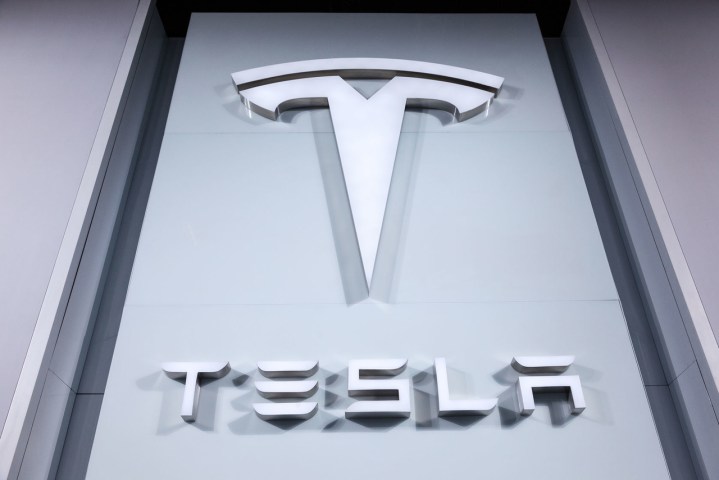Russia’s decision to go ahead with a full-scale military invasion of Ukraine has been met with varying degrees of opposition. While the U.S. and its allies have imposed severe economic sanctions against Russia, others have responded by breaking off ties with them and speaking openly against Russia at international forums.
However, not all of the punitive action against Russia has come from nations. Several U.S. and international companies have also begun taking measures of their own to hit back against Russia.
These actions range from something seemingly mild as an official note of condemnation from senior company executives — to significant decisions that include dialing down operations in Russia and, in some cases, backing out of deals that could have million-dollar financial implications.
Let’s take a closer look at the measures that some of the major tech companies have taken against Russia throughout the past few days.

Apple
As reported earlier, a little less than a week after Russia invaded Ukraine, Apple has almost entirely shut down its business in Russia — save for the App Store, which continues to work for Apple users in Russia. Apple’s Russian website no longer sells products in the country — and all Apple imports to Russia remain indefinitely suspended. The company has also disabled the official apps of R.T. News and Sputnik – both Russian news agencies – for download outside Russia.
In addition, Apple’s payment service — Apple Pay — was reasonably popular in Russia, and it is almost entirely non-functional in the country. Apple C.E.O. Tim Cook has also made his position clear and has condemned Russia’s decision to invade Ukraine.
While Alphabet-owned Google’s Russian operations haven’t been affected by the U.S.-led sanctions, the company has taken several measures against Russian state-owned media outlets by demonetizing them. This effectively means that these outlets can no longer run ads on their YouTube videos and earn revenue from app downloads or websites. Apart from known Russian state-owned outlets, this demonetization drive has also affected several pro-Russian YouTube channels.
Content from many pro-Russian YouTube channels has also been flagged for spreading disinformation, with several of the videos already removed from YouTube citing similar reasons.
Google has also shut down its payment service Google Pay in Russia.
Meta (Facebook, Instagram, and WhatsApp)
Meta — the parent company that owns social media platforms Facebook, Instagram, and WhatsApp was among the first to take action against Russia. Soon after Russia invaded Ukraine, the company’s Head of Security Policy, Nathaniel Gleicher, announced that it would disallow Russian state media from monetizing the content posted to their Facebook pages.
In a blog post, Meta also announced that it has rolled out a feature for Ukrainian citizens that gives them the ability to lock their Facebook profiles. Furthermore, the company also removed the ability to search friends lists for Ukrainian accounts. This is in addition to changes to Facebook Messenger, where users now get a notification if a disappearing message is screenshotted. Apart from these, Meta says it is also actively taking steps to prevent the spread of misinformation on its platforms. These steps are in addition to demoting posts that have links to Russian state-controlled media. All official state-owned media are also labeled as such.
In response to Meta’s (and therefore Facebook’s) action, on March 4, 2022, Russia announced it would block access to the platform.

Microsoft
Microsoft initially had a relatively muted reaction to Russia’s invasion of Ukraine and responded by acting against Russian state-owned outlets. First, the company removed Russia Today and Sputnik News apps from the Windows App Store. This was followed by a decision to de-rank search results of these two outlets on Bing. Microsoft has also stopped running ads for the Russian state media on Bing.
More recently, on March 4, 2022, Microsoft went a step further and announced the suspension of all new sales in Russia. While Microsoft’s blog post doesn’t make it clear what this entails for the average Russian Microsoft consumer, chances are, they will face issues with services like Windows, Microsoft Office, Microsoft 365, and Azure. In addition, Russia’s large and active box gaming community is also likely to be affected by this move.
In the blog post, Microsoft adds that the company may take additional steps if the current situation does not improve.
Intel
On March 4, 2022, Intel joined the list of companies that have taken action against Russia. The chipmaker confirmed that it will suspend all shipments to its customers in Russia with immediate effect. Along with Russia, Intel has added Belarus — a key Russian ally to its ‘ban’ list. In addition, the company has confirmed it will raise funds for relief efforts in Ukraine.
AMD
Intel’s archrival AMD announced that it has halted the sale of its products in Russia effective March 4, 2022. Along with Russia, AMD has also added Belarus to the ban list as it is a key Russian ally in the ongoing conflict.
While the company has yet to officially announce this via its website or social channels, an AMD representative has confirmed the development in an e-mailed response to PC World.
“Based on sanctions placed on Russia by the United States and other nations, at this time AMD is suspending its sales and distribution of our products into Russia and Belarus,” the AMD spokesperson was quoted saying.
Amazon
Because Amazon does not have a massive presence in Russia, the impact of any possible actions on their behalf on Russia would be minimal. This is is probably why Amazon’s reaction to Russia’s invasion of Ukraine was to use its excellent logistics capabilities to get supplies to Ukrainians in need. Amazon has also said it plans to donate up to $10 million to humanitarian efforts in Ukraine.
TikTok
With almost 70 million Russian users, TikTok is among the most popular social media platforms in the country. While the ByteDance-owned social media platform has not imposed any restrictions on its large Russian user-base, it has blocked the TikTok accounts of Russia Today and Sputnik — Russia’s state-owned media outlets.
BlackBerry
A day after Apple’s announcement to dial down operations in Russia, BlackBerry also announced that it is ceasing “all business activities in Russia.” While the company no longer makes smartphones, it is still a well-known security software and cybersecurity company with its software used on automobiles and IoT devices.
Tesla/ SpaceX
Even though Tesla doesn’t have an official presence in Russia, its cars are pretty popular in the country. Following Russia’s decision to invade Ukraine, there have been calls to disable all Tesla cars currently in Russia. Tesla obviously hasn’t heeded those calls as it would only make the lives of ordinary Russian citizens miserable. Tesla did, however, start offering all its Superchargers located in Ukraine free to use.
More than Tesla, the company that hogged headlines was Elon Musk’s other company, SpaceX, which sent over a shipment of its Starlink receivers to enable satellite internet to Ukrainian users. However, with the nearest base station for Starlink located in Poland, it remains to be seen whether the satellite-based internet connection would really work in all of Ukraine – which is the second-largest country in Europe by area.
Netflix
Streaming giant Netflix doesn’t have a significant presence in Russia. However, the company has still announced the cessation of all future projects in the country — including the filming of an ongoing Russian language series called Zato.
Gaming companies
Apart from these tech companies, several names in the gaming industry have reacted to Russia’s invasion of Ukraine. One of the biggest names in the gaming industry — E.A. — confirmed that it would remove the Russian team from FIFA and N.H.L. Meanwhile, CD Projekt Red, the developer of Cyberpunk 2077, has pledged to send $243,000 to aid Ukrainians in need. Another company called 11 Bit Studios has also pledged a share of its income from this week to the Ukrainian Red Cross. G.S.C. Game World, the Ukrainian studio known for the S.T.A.L.K.E.R. franchise, is seeking donations to be sent to an account belonging to the Ukrainian armed forces.
LG
LG Electronics issued a statement on Friday, March 19th that it is “suspending all shipments to Russia and will continue to keep a close watch on the situation as it unfolds.” LG went on to say that it was concerned for the health and safety of all people and it will continue to support humanitarian efforts.
While it is too early to gauge the effects of these punitive actions against Russia, it is becoming more apparent that the list of tech companies joining in to boycott Russia will only increase in number in the coming days.




